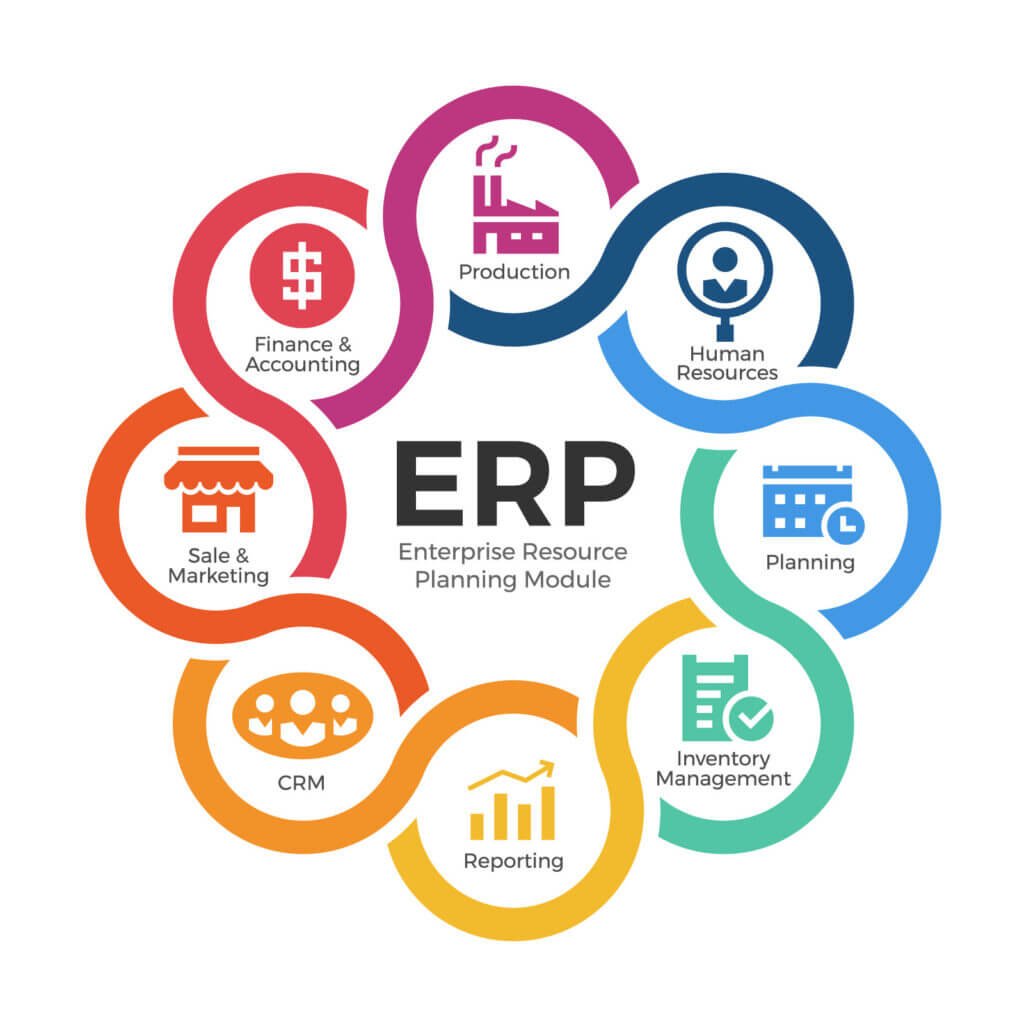✅ Advantages of ERP Software
1. Improved Efficiency
ERP automates repetitive tasks and processes, reducing manual entry and improving business efficiency.
Example: Automatically updating inventory levels after sales to avoid overstocking or stockouts.
2. Integrated Information
All departments access a centralized database, ensuring consistency, accuracy, and real-time information.
Benefit: Avoids data silos, reduces duplication, and improves collaboration between teams.
3. Better Decision-Making
Real-time reporting and analytics give managers better insights to make strategic decisions.
Tools: Dashboards, KPI tracking, financial summaries.
4. Scalability
Modern ERP systems are scalable and can grow with your business by adding new modules or users.
Example: You can start with finance and later add inventory or HR modules.
5. Regulatory Compliance
Many ERP systems are built to help companies stay compliant with industry regulations (e.g., tax, payroll, data protection).
6. Enhanced Productivity
By reducing errors, automating processes, and speeding up workflows, employees can focus on higher-value tasks.
7. Improved Customer Service
Access to customer information in one place helps in faster issue resolution, order tracking, and better relationship management.
8. Standardization of Business Processes
ERP enforces best practices and standard procedures across departments, improving consistency and
❌ Disadvantages of ERP Software
1. High Initial Cost
ERP software can be expensive to purchase, customize, and implement — especially for small businesses.
Includes: Licensing, hardware, consulting, training, and ongoing support.
2. Complex Implementation
ERP projects often take months to fully implement and require deep planning, data migration, and testing.
Risk: Improper implementation can lead to business disruption or failure.
3. Change Management Challenges
Employees may resist using a new system due to lack of training or fear of change.
Solution: Training and communication plans are essential.
4. Customization Can Be Risky
Too much customization can make upgrades difficult and increase maintenance costs.
Tip: Stick to standard features unless customization is truly necessary.
5. Dependence on Vendor
Organizations become dependent on the ERP provider for updates, support, and upgrades.
Risk: Vendor goes out of business or stops supporting the product.
6. Data Security Risks
Although ERP centralizes data, it can become a major target for cyberattacks if not properly secured.
Need: Strong authentication, backups, encryption, and access control.
7. System Downtime
Any system crash or update failure can disrupt business operations across departments.
📌 Conclusion
ERP software can significantly transform a business by integrating functions and improving efficiency — but it requires strategic planning, investment, and ongoing support. Businesses must weigh the benefits against the challenges and ensure proper training and change management are in place.
Would you like a comparison of top ERP systems like SAP, Oracle, Microsoft Dynamics, and Odoo as well?








Leave a Reply